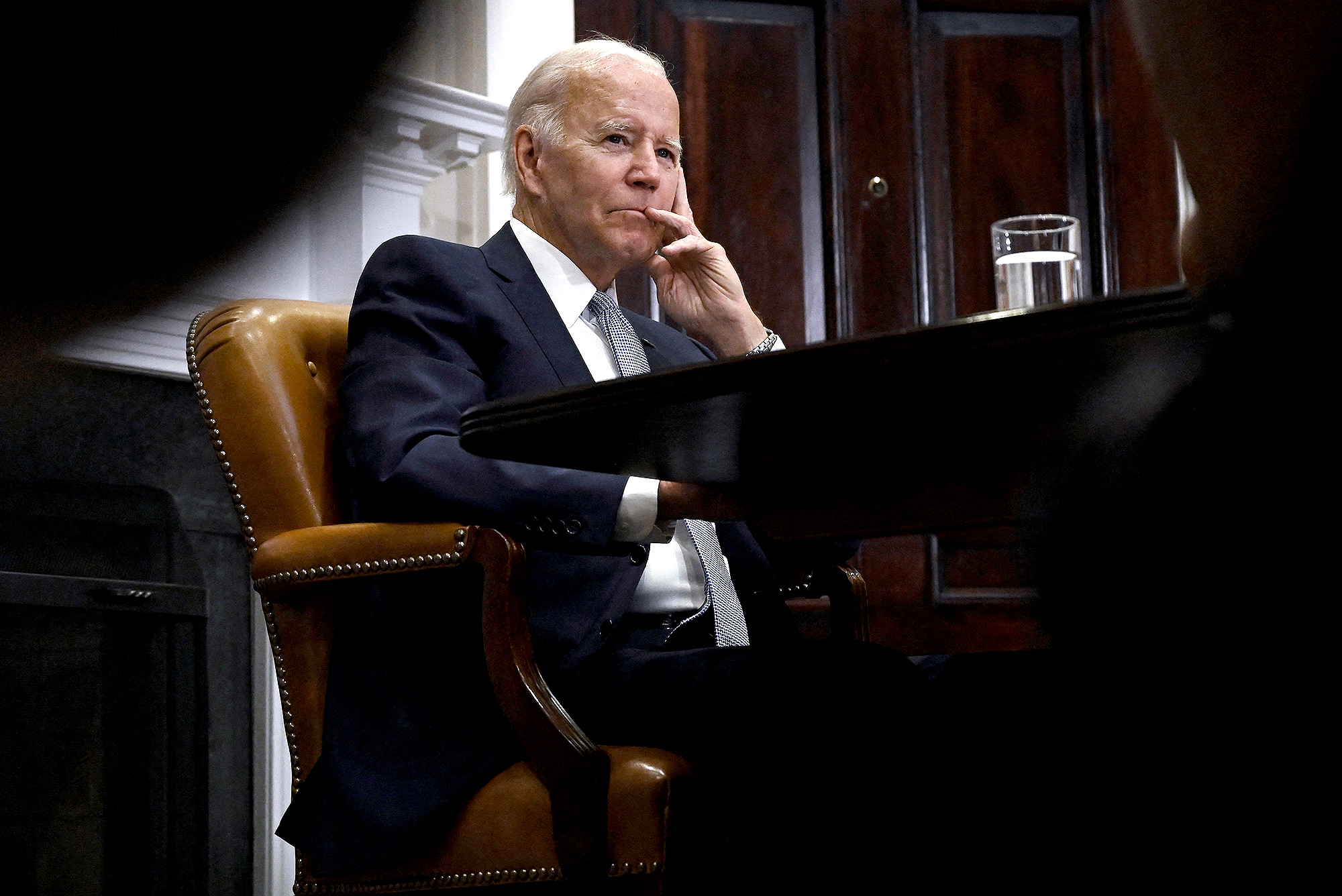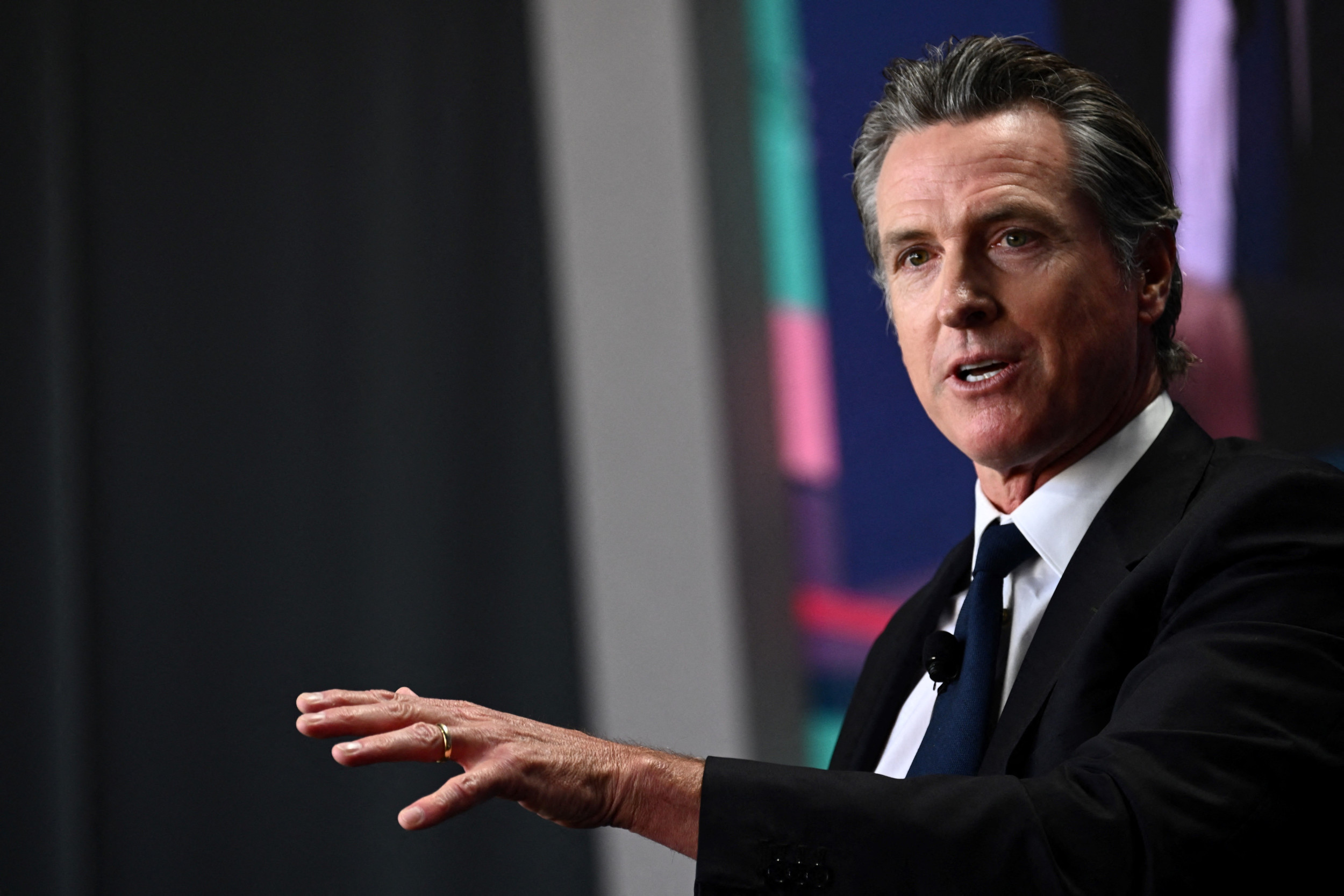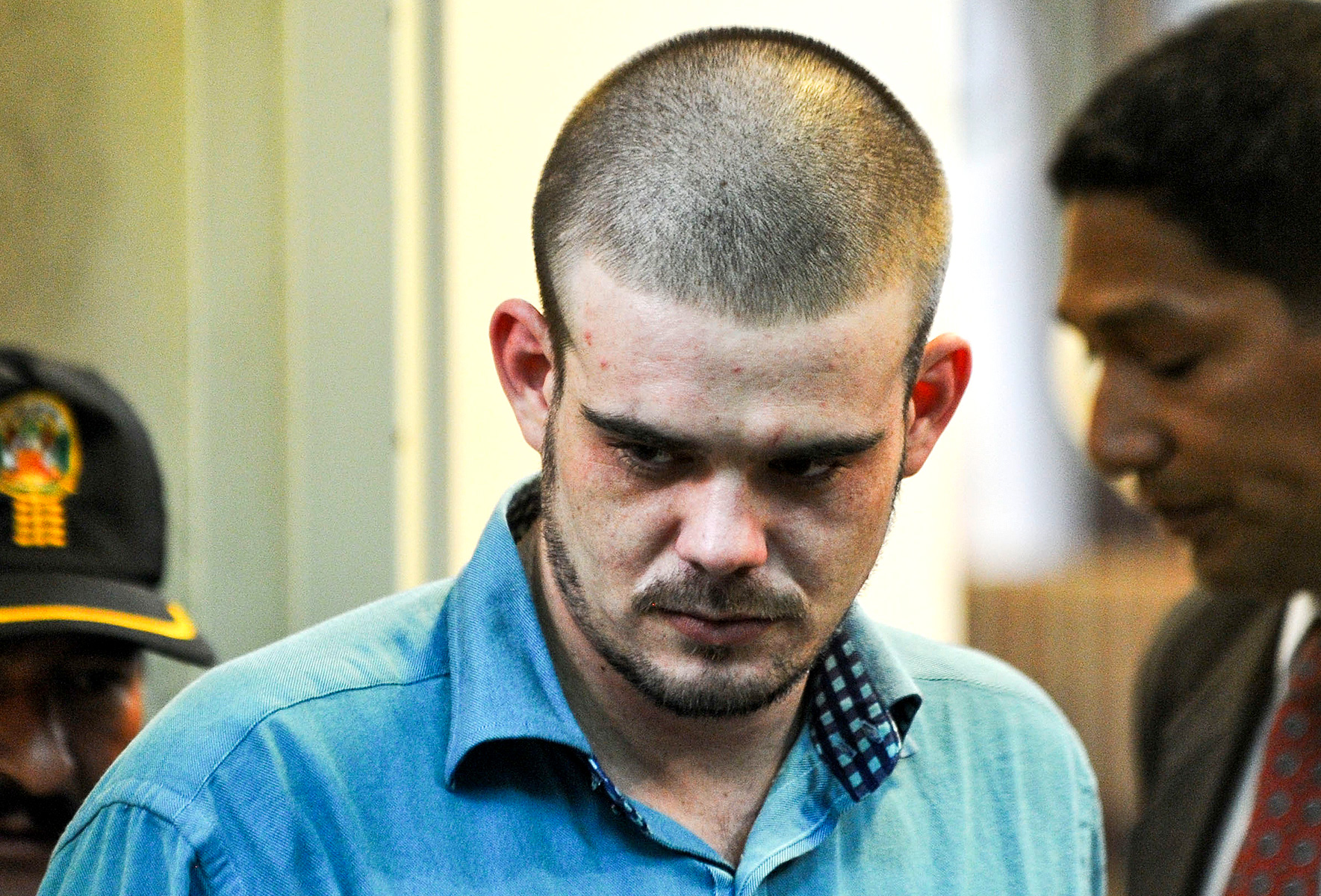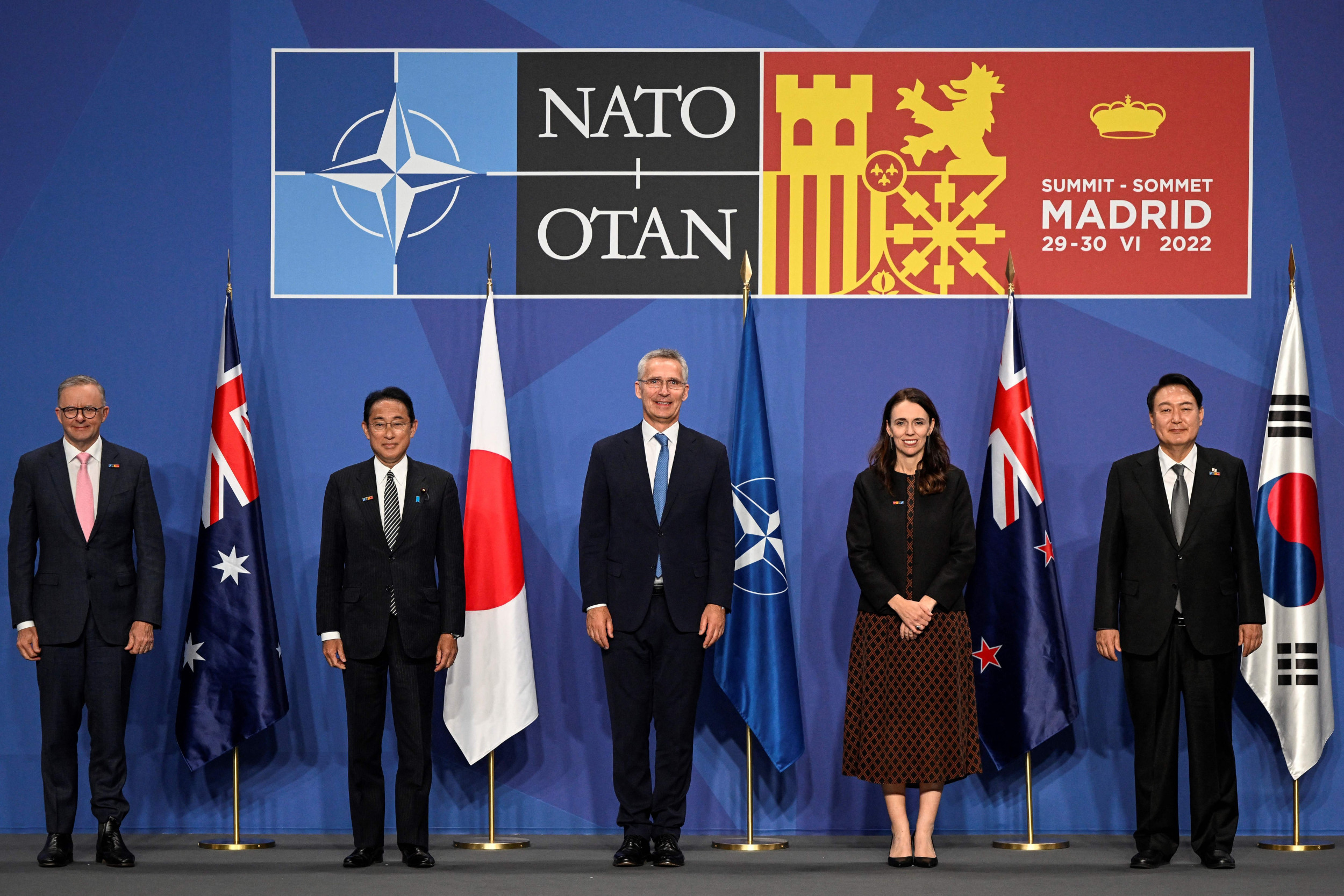NATO Allies Must Spend More, Faster to Beat Russia: Estonia PM
NATO member states must face the "new reality" of long-term confrontation with Russia, Estonian Prime Minister Kaja Kallas says, by meeting and exceeding military spending goals that most allies have spent nearly a decade failing to meet.
Estonia and its Baltic neighbors have been significantly expanding their military spending in response to Russia's war against Ukraine. The European Union and NATO minnows are also among the top contributors of military aid to Kyiv, seeing a Ukrainian victory as an extension of their own efforts to secure NATO's eastern frontier.
"We are in a new security reality, and everybody has to do their share," Kallas told Newsweek in an interview at Stenbock House, the official seat of the Estonian government, in the capital city of Tallinn. She recently committed to spending 3 percent of Estonia's gross domestic product (GDP) on the military.
Her new coalition government has called on NATO allies to commit to a new military spending target of 2.5 percent of GDP at July's summit in Vilnius, Lithuania. But with the majority of NATO states still failing to hit the 2 percent of GDP target adopted in 2014, Tallinn and its fellow Baltic capitals are facing a tough battle.

Kallas said she is both "worried" and "surprised" at the repeated failure of most NATO nations to meet the 2 percent spending target. Only eight members—the U.S., Estonia, Greece, Latvia, Lithuania, Poland, the U.K. and newest member Finland—of the alliance's 31 states have met the threshold.
Some errant major NATO nations have projected hitting the target soon. France and Turkey are expected to hit 2 percent by the end of 2024, while Germany is aiming for 2025. Italy has projected it will pass the required mark in 2028, while Spain is expected to do the same by 2029.
Canadian Prime Minister Justin Trudeau, meanwhile, privately told NATO officials that Ottawa would never meet its commitment, according to reports.
Sweden, poised to join as soon as Turkey drops its long-held opposition and Hungary follows the Turks' lead, plans to hit the 2 percent target by 2026.
"We are increasing it to 3 percent now," Kallas said of her new government's military spending plans. "Some have pledged, but if you look inside that pledge, it's 2027, 2028. I have the feeling that some maybe think that this will just go away. But it's not. I think it's the new reality. And we have to be prepared for this, to actually, really execute our defense investment pledge that we have given."
She continued: "I've said that it should be a floor, not a ceiling, this 2 percent."
Kallas noted her government's push for the allies to set an even higher spending target at the next summit. "Maybe some think that this will pass and then we don't need to do this. I don't think it's so."
Trip Wire Strategy No More
Estonia and its Baltic neighbors scored a historic win at last July's NATO summit in Madrid when the alliance abandoned its "trip wire" defensive concept, which would have effectively surrendered the Baltic region to invading Russian forces. The small NATO force stationed there was to act as an early-warning system, delaying the Russian advance to buy time for full mobilization of the alliance.
The horrors of Russia's invasion and occupation of swaths of Ukraine, though, underscored the high costs Baltic nations would pay in such a scenario. Last year, Kallas warned that her nation would be "wiped off the map" under the trip wire strategy.
Instead, NATO members decided on a more muscular deterrence posture and a commitment to "defend every inch of NATO territory," as Secretary-General Jens Stoltenberg has repeatedly said.
"We got very strong decisions from Madrid," Kallas told Newsweek. "Now it's a question of executing those plans. We moved from the trip wire concept to the defense concept so that we are ready to defend our countries from the first moment."
Estonia, Latvia, Lithuania and Poland are each home to one multinational Enhanced Forward Presence battle group and are overflown by the Baltic Air Policing mission, the responsibility for which cycles among NATO nations.
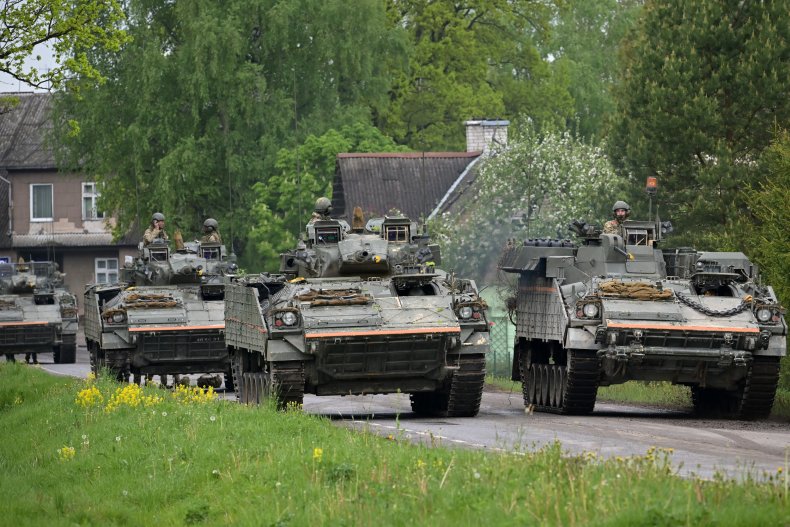
Estonia is looking to procure air defense systems while cooperating with a larger, EU-wide umbrella proposal. In February, Tallinn accepted Spanish midrange NASAMS air defense systems until it could secure its own solution. Kallas said she hoped NATO allies would increasingly look to preposition new weapons in the regions most threatened by Russian aggression.
"It's also important to look at defense regionally," Kallas said. "Some countries who have much better neighbors than we do, their defense might start from countries that are bordering aggressive neighbors. Like we are saying right now that our defense starts from Ukraine."
She went on: "I think the mindset is—or I want to say so—changing. Germany, for example, talks about this. That when we invest in our capabilities, it might mean that these are positioned somewhere else because that's also our defense, the defense of our region. But I would be happy to see it move faster."
Kallas said she is "very grateful for those countries who are present here. And not only those who are present with the troops but those who have prepositioned equipment here—like air defense, for example, from Spain. And this is very important. And I think this is how NATO should function."
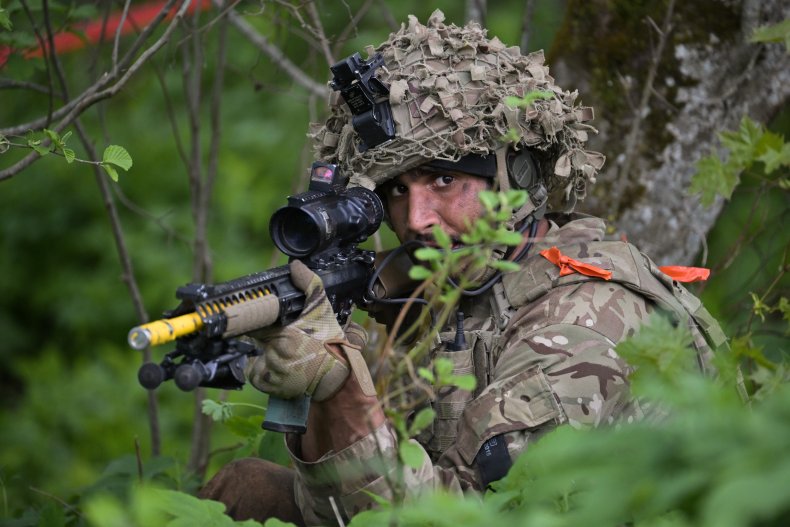
The prime minister also pointed out that it is relatively easy to move people but it's much harder to move equipment. "It's also relatively expensive to keep the soldiers in another country, where it's much cheaper to preposition the equipment," she said.
"It doesn't sound good to say 'Estonia wants this' or 'Estonia wants that,'" Kallas said. "We want to operate and cooperate with our partners, and we have been operating with our partners so far.
"This is extremely important so that all those puzzle pieces work together just fine and so that it is understandable for all the parties. And also—because we are all democracies—defendable, and I mean democratically defendable in those other countries that are present," she said.
Joint exercises, clear command structures and deeper cooperation, Kallas said, will constantly be needed to improve NATO's readiness at its most vulnerable points. "All of it is important to show to our aggressive neighbor not to even think about our region because we are ready," she said. "We are ready from the first moment."
Newsweek has contacted the Russian Foreign Ministry by email to request comment.
